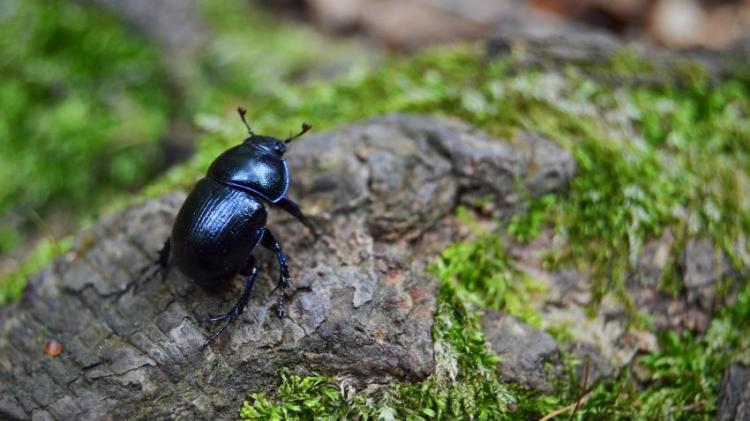North-Press Agency
Swarms of black beetles have descended on homes in a number of Syrian regions during the past days, spreading fears among people children because they are unfamiliar or unknown. However, experts in the field of agriculture confirm that they are beneficial to crops and do not pose a threat to humans.
Appear in the spring
Mahmoud Suleiman, a resident of the village of Zafarana, Tartous governorate, told North-Press that the insect Calosoma has appeared for decades in the springtime after mild weather and rain, but what is new in the last two years is its large and unprecedented reproduction.
He added: "It lives among green herbs and feeds on worms, and are similar to some field insects that chirp at night, but they are different because they are short-lived and appear for about a month every year before disappearing."
Rawad Mohammed, a worker at a popular vegetable market in the district of Jaramana in the Rif-Dimashq governorate, said that the insect appeared two weeks ago in large numbers in Jaramana, coming through the groves of Ghouta and nearby watersides, but it appeared in fewer numbers in public squares and under street lights.
Mohammed said: "The insect is harmless; it is beneficial and will disappear in a few days, and there is no need for some residents to apply to the municipality to demand the spraying of pesticides to control the insect."
It is not harmful
The director of plant protection in the Ministry of Agriculture, Fahr al-Mushrif, told North-Press that black beetles that have invaded some areas are beneficial and are not harmful to plants, not even to humans, but have benefits for vegetation as they eliminate other harmful insects such as worms that usually constitute a real pest for plants and vegetables.
Fears
Al-Mushrif added that although these insects are not dangerous, they evoke disgust or fear, especially in residential areas that are unaware of this type of insect, unlike rural areas that see the appearance of these insects as common.
There are two types of insects that have spread recently, such as Calosoma and Amara, one large and one small, but they are in fact useful. These insects spread more in the area from Homs to Tartous and in the town of Jaramana in the countryside of Damascus.
The Syrian Ministry of Agriculture took preventative measures a few days ago, fearing the arrival of large swarms of locusts through the desert of Homs to the governorates of Daraa and al-Suwayda, while Syrians in various regions observed an increasing movement of insects and reptiles, especially in agricultural areas and on water surfaces.

